Search Results for 'the Tribune'
9 results found.
Changing face of media in Galway continues apace with sales of Galway Bay FM and Connacht Tribune

The changing face of the media scene in Galway will accelerate over the next few weeks as the CCPC (Competition and Consumer Protection Commission) complete deliberations on the separate acquisitions of Galway Bay FM and the Connacht Tribune newspaper.
City native makes fiction debut with stunning rural noir whodunnit

It was a sort of homecoming for Galway-native writer Michelle McDonagh last week as she savoured the atmosphere of Cuirt the week in which her debut novel was launched in her native city.
National media a disgrace
Insider understands the job of opposition politicians: it is to make you feel miserable. Their thinking is as follows; no matter what condition the country is in, we must give the impression that things are a lot worse than they are, and if we can convince enough people that the country is ‘gone to hell in a handcart’, then we can pick up some extra votes which will help us at the next election.
‘Bed and quinine appear to be the two great safeguards.’
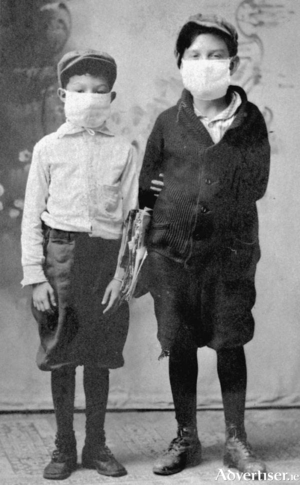
The Galway Expess was one of the first local newspapers to notice that the increasing numbers of people succumbing, some very suddenly, to the so called Spanish ‘Flu that swept across the world in the early summer of 1918, was ‘virulently infectious’. It speculated that it first reached Ireland through Belfast, and in many cases ‘entire households have been seized,’ industries have been closed, and schools ‘although children suffer less than adults, they spread infection’, have also been closed. ‘Sudden collapses are the most striking feature, the victim being struck down almost immediately.’
The Black and Tans' raid on O’Flaherty’s Pub
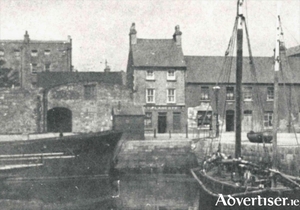
The tall building in the centre of our picture of New Docks Road taken in 1903 was known as “Gas Tank” Flaherty’s pub. We presume he got his nickname because of the gasworks across the street. It was here that the distinguished English painter Augustus John lived for several weeks in 1914. He did a lot of painting and drawing around the city and especially the docks area, but when the World War I started, he began to worry that the locals would regard him as an English spy, so he went back to England.
Leisureland difficulties a sign of these strange times
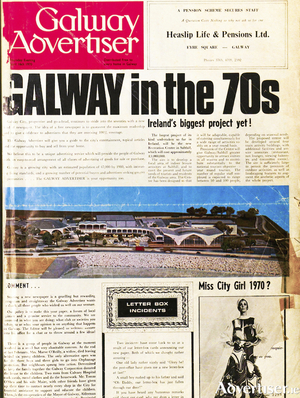
Fifty years ago last April, on the very first edition of the new Galway Advertiser, was an impressive and rare in those days, colour photograph of the proposed Leisureland development planned for Salthill. Under a headline of Galway in the 1970s, it promised a facility that would be at the heart of Galway and west of Ireland life for years to come. And so it has been.
Inaugural John Cunningham lecture to honour late newspaper editor
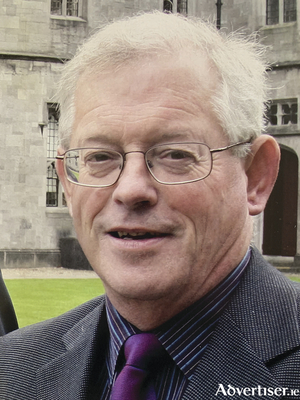
The Discipline of Journalism and Communication at NUI Galway will host the inaugural ‘John Cunningham Journalism Lecture’ on Monday,November 18 at 5pm in the Aula Maxima. The event honours the late Connacht Tribune Editor and long-time journalism lecturer John Cunningham.
The Galway Observer
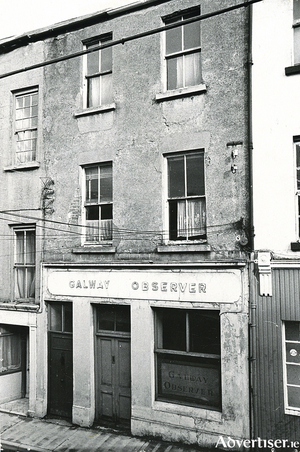
Fifty years ago this weekend, on October 1 1966 to be precise, the last issue of the Galway Observer newspaper was published. It was founded in 1881, published on a Thursday (which was a half day in Galway) and circulated extensively in the city and county. In 1905 it declared itself as the “official advertising medium for the following public bodies – The Galway County Council, The Galway Town Council, Galway Rural District Council and Board of Guardians, Loughrea Rural District Council and Board of Guardians, Gort Rural District Council and Board of Guardians, Clifden Rural District Council and Board of Guardians, Galway Harbour Board, etc, etc.
Local papers and their role in our history
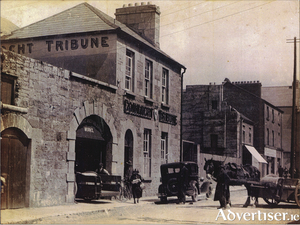
In 1909 Galway was at a low ebb, the population was just over 3,000, the local economy was in poor shape, the canal and the docks were not being well used commercially, the student population of UCG was 131, there was very little manufacturing, and local politics was still bedevilled by the Parnell split. There were two local newspapers, The Connacht Champion which actively supported William Smith O’Brien MP and often virulently attacked the Irish Parliamentary Party, and The Galway Express which originally supported the conservative unionist viewpoint, but which gradually became more nationalist until its premises were wrecked in 1920 by the Black and Tans.

